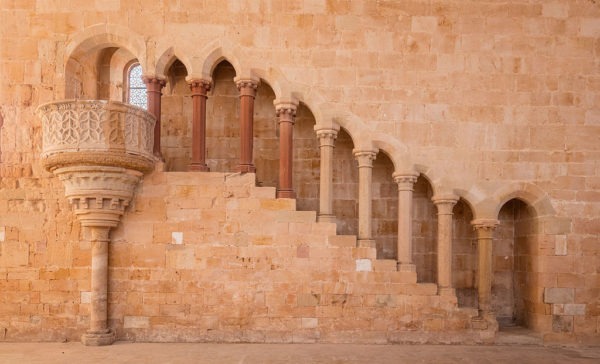At the church I attend, we are faithful to ask “The Questions”:
“How is it with your soul?”
“Where have you seen Jesus?”
“How can we pray for you?”
These questions, when asked and answered purposefully, work to create community. They acknowledge that we are more than schedules and talents. We are souls on a journey. These questions give us opportunities to talk about what we are learning and experiencing as we walk with God. Which leads me to my favorite question…
“Where is God working in your life right now?”
So, this morning, I’m going to pretend that you asked me that question and I’m going to answer it.
God has been working in my life over the last few months, teaching me the value of honest communication. By honest, I don’t mean that I’ve been lying. I mean that I have a tendency to hold back. In certain situations, I will withhold my feelings, or responses if I think expressing them will lead to a hard conversation.
I absolutely hate hard conversations. I will do just about anything to avoid an awkward, tense or confrontational conversation. I’m guessing I’m not alone in this… right? I am always annoyed when people ask “Who dislikes confrontation?” Who doesn’t dislike confrontation? If someone really does like confrontation – like looks forward to it – then something else is wrong with them, right?
For most of the world, our feelings about hard conversations fall on the spectrum of “Take a Deep Breath and Do the Hard Thing” to “I’d Rather Put My Own Eye Out.” (Which is where I am by the way!)
So, I have been guilty quite often of avoiding hard conversations by ignoring things, talking myself out of feeling hurt, assuming things were my fault or outright denying that there’s a problem at all, refusing to apologize and failing to do the true work of reconciliation.
But God is gently showing me that these choices do not lead to healthy relationships. What does lead to healthy relationships are honest conversations that express my feelings and reactions.
As we weigh our choices it is helpful to think about the “IF” questions and challenge ourselves to think through to the natural consequences of our choices. So, let’s think through this one together.
“IF I choose not to have honest conversations about how I am feeling with those close to me then __________________________________.”
Most likely the thing you filled in this blank with is serious. Broken relationships, depression, unhealed emotions and isolation are all really serious things. This choice to be honest or avoid honesty because it’s hard will affect our relationships. And here is where God is really doing his work in me right now – if I refuse to be honest with Him, we will never be able to develop the intimate relationship that both of us desire.
Now don’t get me wrong, I’m not stupid enough to lie to God. I know he knows everything so that’s pointless. What I do instead is stand back at a safe distance and have polite conversations with Jesus. I thank him for lots of things, pray for other people, and confess sins. I am careful to add disclaimers like, “If it’s your will” and “whatever brings you glory” and I try to ask for things in ways that reflect what my theology teaches about God’s will. And all of those things are good things. We should speak to God respectfully. But for me, all of that politeness is really just layers of protection I’ve put around me to keep it from getting too real. It’s an example of how I am willing to bring my head into my relationship with Jesus but not always my heart. My head feels safe but my heart feels vulnerable.
Talking honestly with God is a choice. It’s a hard choice but it is a choice we can all make. You do not have to be a super saint to choose to talk with God as honestly and openly as you know how. We can all start today. So, really this morning’s sermon is an invitation. An invitation to begin having the kind of conversations with God that build deep, intimate relationship.
Earlier this year I was doing a study of all of Jesus’ interactions with women in the gospels. I was thinking a lot about how Jesus saw me as a woman. So, I printed off a list of places where he spoke specifically to women and I started working through it. And then I got to the encounter with Mary and Martha that we are going to talk about this morning. And I saw both of these women accept Jesus’ invitation to have a real, unfiltered, and even raw conversations with him.
Mary and Martha
Their story is found in John 11. Mary and Martha are sisters and they have a brother named Lazarus. This sibling group have become close friends of Jesus – the kind of friends that feel like family. Jesus would come to their home in Bethany to be refreshed with good food and rest. In fact it was on one of those occasions that Mary and Martha got into a snit about who was working harder to fix a meal and Jesus stepped in to settle it. Only a close friend would step into the middle of a sister-fight!
I’m guessing it felt kind of exciting to be able to tell people they were close friends of Jesus’. He had huge crowds clamoring to get close to him and they got to have him for dinner at their house.
And then one day, Lazarus got sick… really sick. But the sisters knew what to do. Jesus was their good friend and he had been healing people all over the place. So, they sent someone to find Jesus and give him this message.
John 11:3 – “Lord, the one you love is sick.”
The sisters are hoping for a certain response. They don’t come right out and say it but their expectation is that Jesus will stop what he is doing, come to Bethany and fix this crisis. But that is not what happens.
When he heard this, Jesus said, “This sickness will not end in death. No, it is for God’s glory so that God’s Son may be glorified through it.” Now Jesus loved Martha and her sister and Lazarus. So when he heard that Lazarus was sick, he stayed where he was two more days, and then he said to his disciples, “Let us go back to Judea.” (John 11: 4-7)
So, even though Jesus loves Mary, Martha and Lazarus, he chooses to stay where he is for two more days. And while he is delaying, Lazarus dies.
We’ve all had this happen. Moments when Jesus doesn’t act like we think he should. We know Jesus loves us and yet we find ourselves thinking, “That’s not how I treat people I love…”
Mary and Martha have experienced a tragedy – they have had to sit by and watch as their brother got sicker and sicker. And he wasn’t in a hospital. He was probably at home being cared for by them around the clock. Then when they were tired to the bone from caring for him, they had to grieve his loss, and plan a funeral.
They weren’t just tired. They were confused too. Why would Jesus, the one they believed to be the Messiah, the one who had healed hundreds of people, why would he not make the slightest effort to save their brother?
I’m guessing they were a little embarrassed too. All their neighbors know that they are friends with Jesus. Are they all whispering about the fact that Jesus let Lazarus die?
All that to say, when Jesus arrives in Bethany the sisters are not planning a huge welcome home party for him.
They are ….. fill in the blank – mad, sad, frustrated, disappointed, exhausted, disillusioned, resentful.
Have you ever felt any of those things towards Jesus?
What happens next is fascinating to me because we see two common ways of approaching hard conversations in Mary and Martha’s responses to Jesus. Martha goes first.
When Martha heard that Jesus was coming, she went out to meet him, but Mary stayed at home. “Lord,” Martha said to Jesus, “if you had been here, my brother would not have died. (John 11: 20-21)
I’m going to call Martha’s the honest approach. She doesn’t stand back and say things like, “Well you must have needed another angel.” Or “It must have been your will.” She looks him right in the eye and tells him exactly what she is thinking. “You let me down. You did not do what I asked you to do. You could have stopped this from happening.” And the thing she doesn’t say but is clearly communicating is “I thought you loved us.”
I’m guessing that the disciples and other people around Jesus all sucked their breath in and waited for the wrath that was surely about to fall on Martha’s head. You can’t talk that way to God… can you?
Here’s what I have come to love about Jesus – He is about to fix this whole situation by raising Lazarus from the dead. And that would have solved the need for all of the hard conversations he’s going to have that day. And it would have protected him from having to handle Mary and Martha’s sadness and anger and disappointment. If it had been me, I would have said to Martha, “Stay right here. I’ll be right back.” And I would have raised Lazarus from the dead and commanded that the party in my honor begin.
Instead, Jesus takes time to process Martha’s experience with her. He tells her that Lazarus will live again. But she just thinks he’s comforting her with the promise of future resurrection when Jesus will return someday. So he says again, “I am the resurrection and the life…” And he asks her whether or not she believes that to be true. He gives Martha the opportunity to confess her belief in him as the Messiah even in her disappointment with him.
Have you ever been there? “I’m mad, sad, hurt but I believe you are God.” That is an okay place to be.
While all of this is going on Mary is still back at the house. She is feeling all of the same things Martha is but she is an avoider. Again, you would think Jesus would say, “Whew, at least I only have to deal with one sister.” But no. He tells Martha to let Mary know that he would like to speak with her.
After she had said this, she went back and called her sister Mary aside. “The Teacher is here,” she said, “and is asking for you.” (John 11: 28)
This is so special to me because I am Mary. I would have been hiding in the house. I would have been afraid of my own emotions and sure that Jesus didn’t want to be bothered with them. That they would have angered him. I would not have trusted him with my true self in that moment.
And again, Jesus could have skipped all of this pain and relational effort and just fixed the situation. But instead he seeks out Mary because he knows she needs to have a conversation with him.
And now she has a choice. Jesus has invited her to come and say how she’s feeling. She can stay in the house and hide or go to Jesus for release and comfort. Each of these choices would have significant consequences for her relationship with him.
When Mary heard this, she got up quickly and went to him. Now Jesus had not yet entered the village, but was still at the place where Martha had met him. When the Jews who had been with Mary in the house, comforting her, noticed how quickly she got up and went out, they followed her, supposing she was going to the tomb to mourn there. When Mary reached the place where Jesus was and saw him, she fell at his feet and said, “Lord, if you had been here, my brother would not have died.” (John 11:29-32)
Isn’t that fascinating that she says the exact same thing that her sister said. “Lord, if you had been here, my brother would not have died.”
What conversation do you need to have with Jesus? “Lord if you had been here…this…wouldn’t have happened.”
I hold back on hard conversations because I don’t want people to be mad at me. I don’t want God to be mad at me. But look at Jesus’ response to these hard interactions with Mary and Martha.
When Jesus saw her weeping, and the Jews who had come along with her also weeping, he was deeply moved in spirit and troubled. “Where have you laid him?” he asked.
“Come and see, Lord,” they replied. (John 11:33-34)
Their suffering moved him. Our suffering moves God. Psalm 103:13 says “As a father has compassion on his children, so the Lord has compassion on those who fear him…” When our children are suffering we are moved, aren’t we?! Even if the suffering is caused by their own bad choices or they are suffering because they don’t understand our decisions.
We don’t know why Jesus didn’t come immediately to heal Lazarus. We don’t know why the plan was to do this the hardest way possible. But John 11: 4 tells us that what was going to happen was for “God’s glory so that God’s Son may be glorified through it.”
Jesus seems to be okay with the fact that Mary and Martha don’t understand all of that. He doesn’t respond with, “You’ll understand someday but until then buck up and cooperate with the plan.” No, he invites them to express their confusion and pain.
Maybe someday they did understand a little better what happened with Lazarus. Maybe someday they were able to wrap their theology around their suffering in a way that made sense. Their emotions did not stay as raw as they were that day. But that’s because they didn’t skip the step of having the honest conversation with Jesus. I want to skip right to being Jesus’ brave little soldier. I think that’s easier for him and nobler for me. Instead, he invites us to make the choice to be honest about where we are today.
Jesus raised Lazarus from the dead that day. He had the men roll back the stone from the opening of the tomb and he called to Lazarus to come out. And Jesus was glorified that day. Verse 45 says that “many Jews put their faith in Him” after witnessing Lazarus’ resurrection. It also got him in trouble with the Pharisees. It was the straw that broke the camel’s back. They couldn’t let Jesus go around raising people from the dead. It could cause even more people to believe he was the Messiah.
About a week before the crucifixion, Jesus comes to Lazarus’ house for one last dinner with his dear friends. And while the men are eating, Mary comes into the dining room, pours expensive perfume on Jesus’ feet, lets down her hair and begins to tenderly wash them.
This interaction is the result of the choice she made to accept Jesus’ invitation to have an honest conversation. IF… we are willing to have honest conversations with Jesus, we will be able to be in intimate relationship with him. We will be able to worship him with our whole selves. We will be able to love and serve him wholeheartedly with nothing held back.
Response
What things are you experiencing right now because you have chosen to have “polite” conversation with Jesus?
- Inability to trust his intention towards you
- Resentfulness
- Inability to forgive or move past a hurt
- Hard-to-feel emotions
- Deflecting pain: “Others have it worse”
What conversation do you need to have with Jesus this morning?
Do you need to ask:
- Why weren’t you there?
- Why didn’t you stop that thing from happening?
- Why haven’t you healed me?
Or maybe you need to tell God:
- Something that you are afraid of
- “I don’t understand why you are doing this thing”
Having honest conversations with Jesus is not a magical formula. We will not get all the things we ask for. He will not answer every question we have. But the very act of being honest brings release and comfort and increased intimacy.
I want to end by showing you one more example of someone having an honest conversation with God. It’s found in Luke 22. Jesus has been betrayed by Judas and is waiting to be arrested and crucified. Listen to what he says to his Father.
“Father, if you are willing, remove this cup from me; yet, not my will but yours be done.” Then an angel from heaven appeared to him and gave him strength. (Luke 22:42-43)
This is Jesus having an honest conversation with God. One member of the Trinity having an honest conversation with another. He’s says, “I don’t want to do this…” Jesus knows that his crucifixion is The Plan. And yet he chooses to have an honest conversation with the Father about how he is feeling. And does God respond with anger or even irritation that the plan is being questioned at the last moment? Does Jesus get a “sit up straight and get with the program” lecture? No! God sends an angel to strengthen him.
The world is not going to fall apart if we are honest with God about how we are feeling. Just the opposite is true: we will experience his presence, his comfort, and his peace.
Now is the time to choose.
What conversation do you need to have with Jesus this morning? What have you been holding back? He wants to hear it. Will you trust Him with it?

 The will to see God’s Kingdom come is not nearly as important as the will to…what?
The will to see God’s Kingdom come is not nearly as important as the will to…what?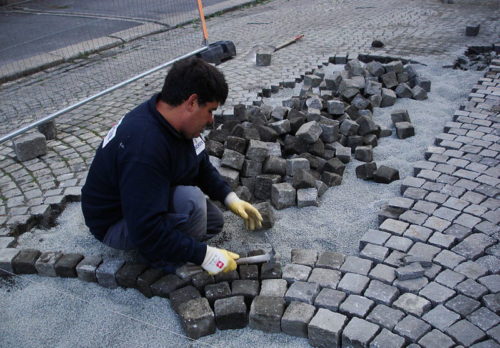



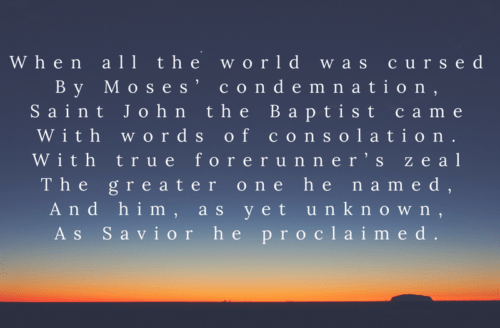

 A few years ago it became clear to me that the world was changing when Jerry and I were driving with some friends through the wild, beautiful desert of New Mexico.
A few years ago it became clear to me that the world was changing when Jerry and I were driving with some friends through the wild, beautiful desert of New Mexico. 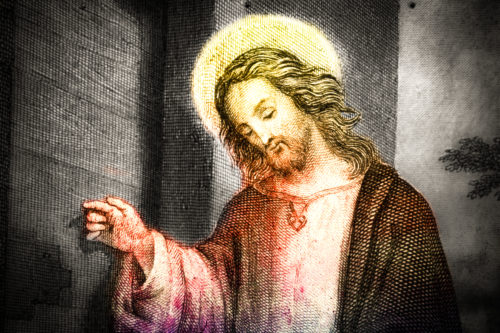

 Rev. Carolyn Moore: My husband and I have prayed together every night for most of our daughter’s life. When she was young, she’d crawl into our bed with us before going off to her own, and we would pray over her. We always prayed for God’s hand over her life, and we prayed for her future spouse. As she got older, she always knew we were there, praying for her, night after night. Of course, she prayed with us over our church and we prayed with her over things she was involved with at church. She grew up knowing the language of prayer, and feeling comfortable with prayer.
Rev. Carolyn Moore: My husband and I have prayed together every night for most of our daughter’s life. When she was young, she’d crawl into our bed with us before going off to her own, and we would pray over her. We always prayed for God’s hand over her life, and we prayed for her future spouse. As she got older, she always knew we were there, praying for her, night after night. Of course, she prayed with us over our church and we prayed with her over things she was involved with at church. She grew up knowing the language of prayer, and feeling comfortable with prayer. Rev. Adam Lipscomb: Lately we’ve been praying that they just understand how deeply God loves them.
Rev. Adam Lipscomb: Lately we’ve been praying that they just understand how deeply God loves them. Rev. Kelli Ward: We’ve discussed our prayers for our children and how we pray for our children to have a healthy understanding of the church. That they would have a healthy understanding of church as a family, complete with struggles and victories, grief and celebration.
Rev. Kelli Ward: We’ve discussed our prayers for our children and how we pray for our children to have a healthy understanding of the church. That they would have a healthy understanding of church as a family, complete with struggles and victories, grief and celebration. Dr. Otis T. McMillan: Below is a sample of the prayer we prayed for our children and with our children. Barbara and I had weekly Bible study in our home:
Dr. Otis T. McMillan: Below is a sample of the prayer we prayed for our children and with our children. Barbara and I had weekly Bible study in our home: Dr. David Smith: Angie and I did not separate ministry into a compartment. We simply did “Kingdom life together” with our entire family. They were never excluded from the hard stuff and always were able to celebrate the high points. It seems to be a better reflection of what life is like; fully integrated in the walk of faith.
Dr. David Smith: Angie and I did not separate ministry into a compartment. We simply did “Kingdom life together” with our entire family. They were never excluded from the hard stuff and always were able to celebrate the high points. It seems to be a better reflection of what life is like; fully integrated in the walk of faith.
 Rev. David Drury: I have used some ministry experiences to expose my kids to things others don’t get the opportunity to do. I see them as helpful windows into my ministry, so they understand what I do, and also just to help them be better Christians. So I have taken them with me on hospital visits, to pray with people, to funerals, etc.
Rev. David Drury: I have used some ministry experiences to expose my kids to things others don’t get the opportunity to do. I see them as helpful windows into my ministry, so they understand what I do, and also just to help them be better Christians. So I have taken them with me on hospital visits, to pray with people, to funerals, etc. very best not to be spiritually two-faced. We try to act the same, live the same, talk the same, be the same at home as we are in church. I will not act imperfect in my “real” life and then act perfect in my “preacher” life. I try to own my brokenness and imperfection as a preacher. we just try to be real in our faith, authentically Christian. And my hope is that will lead my children to love the church as much as I do.
very best not to be spiritually two-faced. We try to act the same, live the same, talk the same, be the same at home as we are in church. I will not act imperfect in my “real” life and then act perfect in my “preacher” life. I try to own my brokenness and imperfection as a preacher. we just try to be real in our faith, authentically Christian. And my hope is that will lead my children to love the church as much as I do.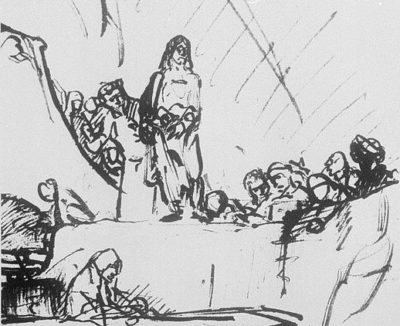

 Once a professor of theology at the University of Paris took the leading position of the Franciscan Order. He did so amidst the anti-mendicant, which meant anti-Franciscan, controversy. Two years into his term, Bonaventure journeyed to Mt. Alverna in Tuscany, where St. Francis, the founder of his Order, saw the six-winged seraph and received the stigmata. There Bonaventure received another sort of vision; he conceived the Itinerarium Mentis in Deum – The Journey of the Soul into God.
Once a professor of theology at the University of Paris took the leading position of the Franciscan Order. He did so amidst the anti-mendicant, which meant anti-Franciscan, controversy. Two years into his term, Bonaventure journeyed to Mt. Alverna in Tuscany, where St. Francis, the founder of his Order, saw the six-winged seraph and received the stigmata. There Bonaventure received another sort of vision; he conceived the Itinerarium Mentis in Deum – The Journey of the Soul into God. 
